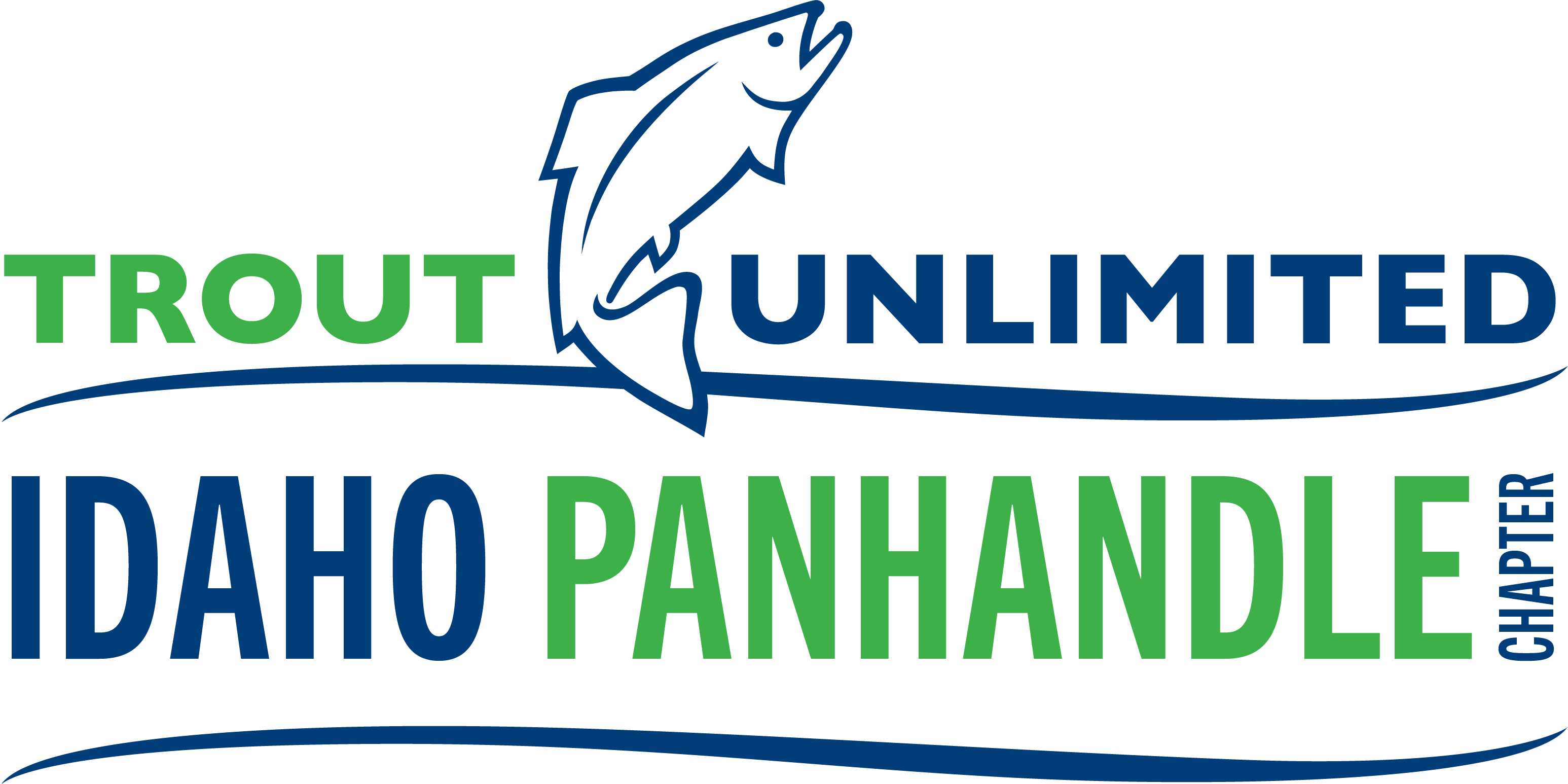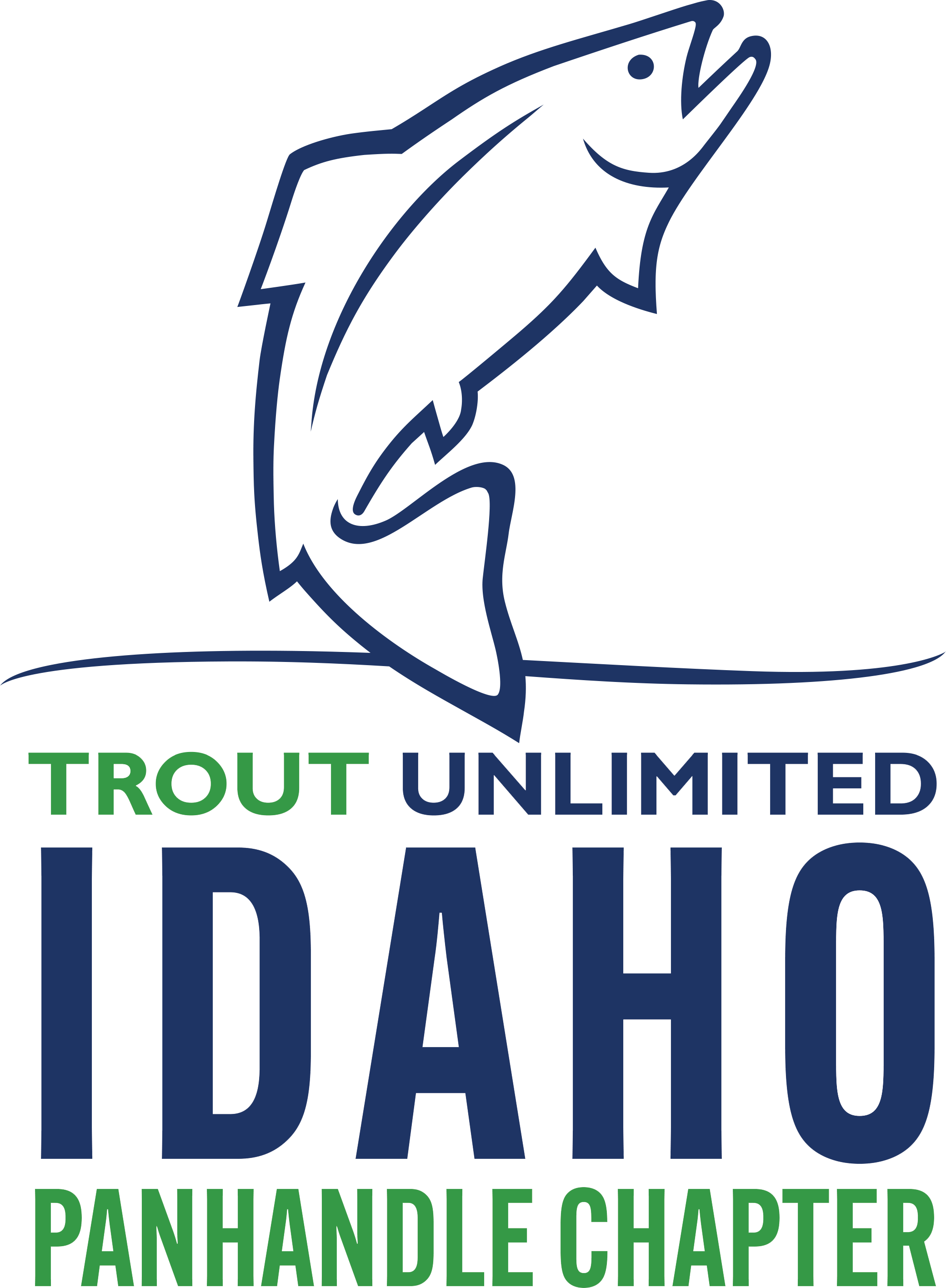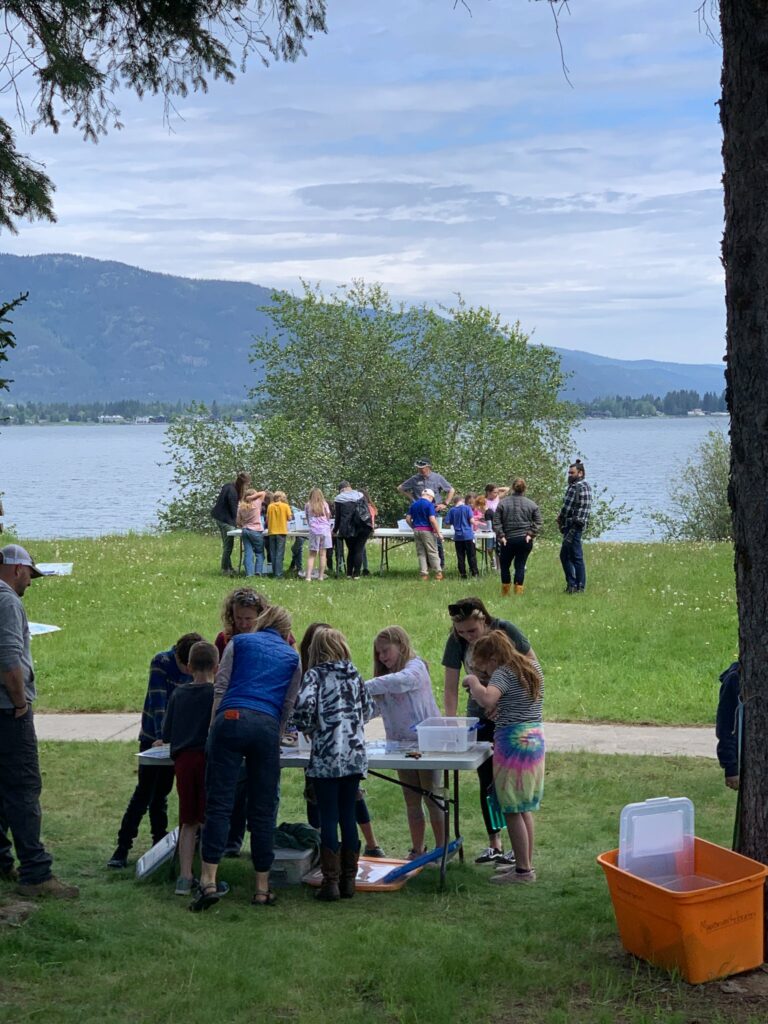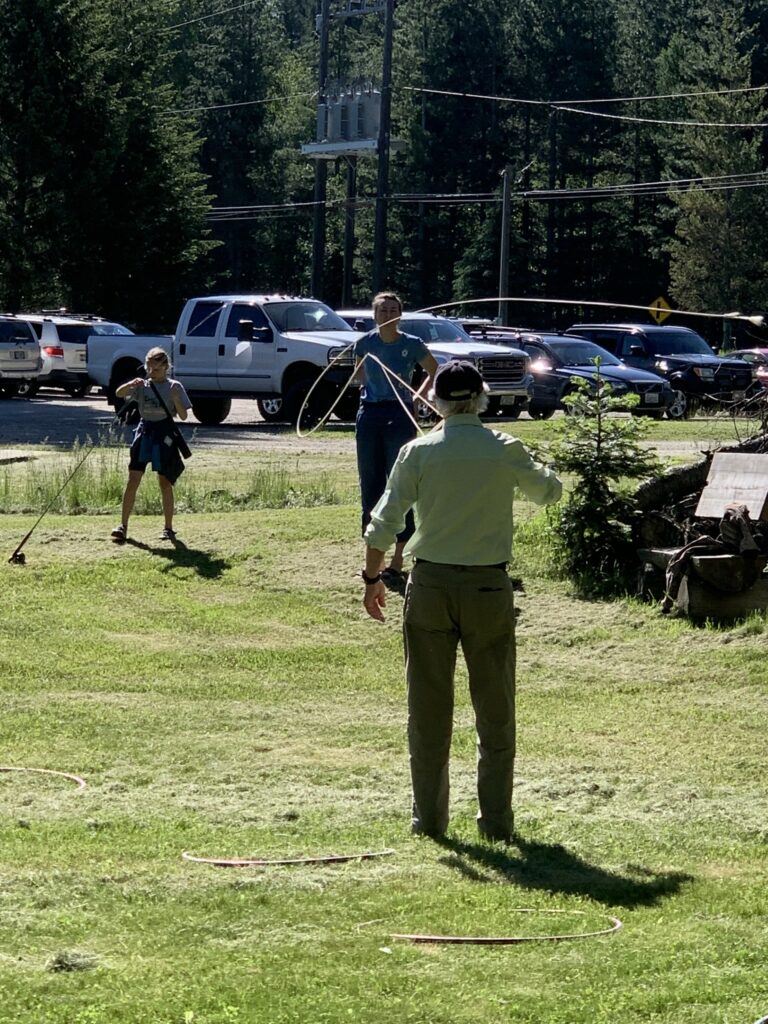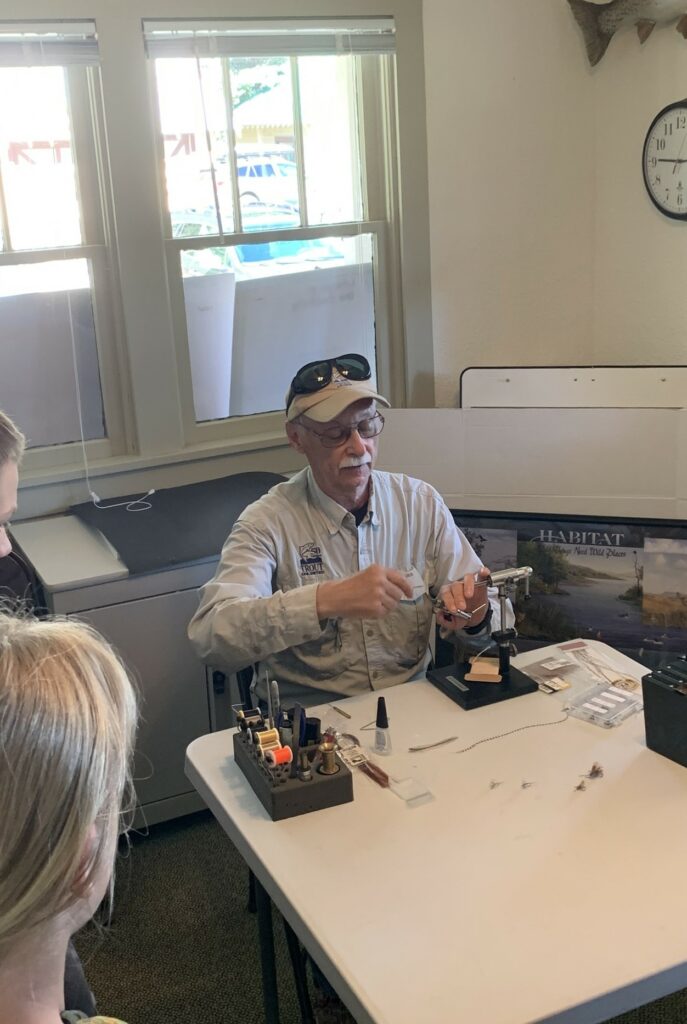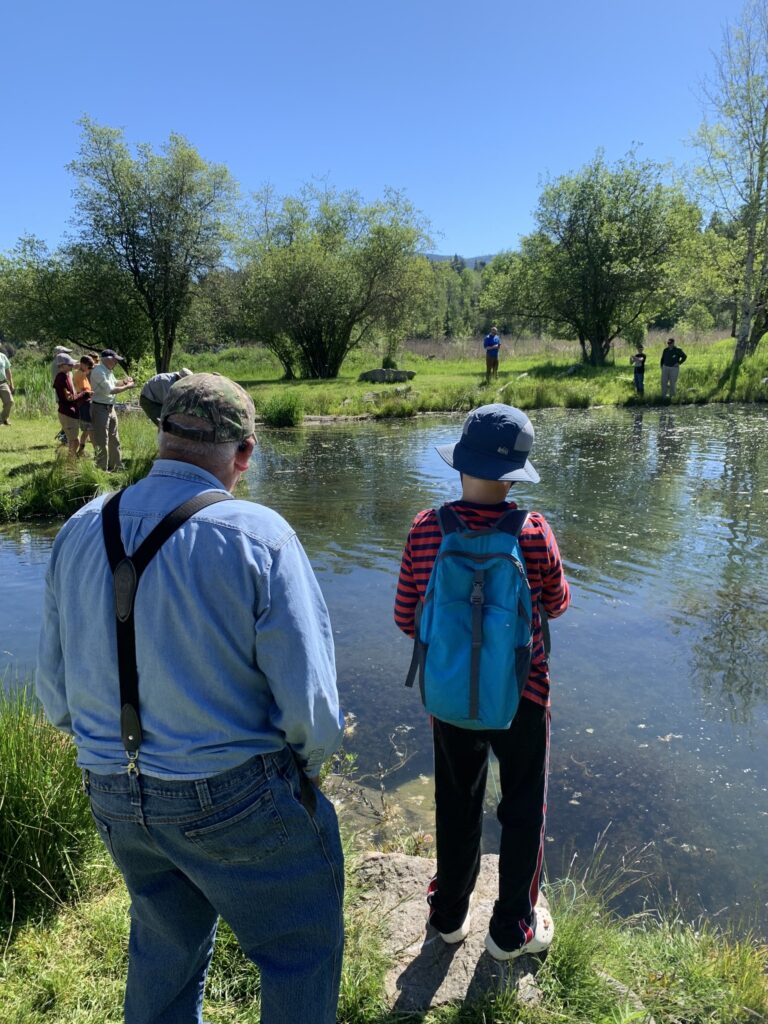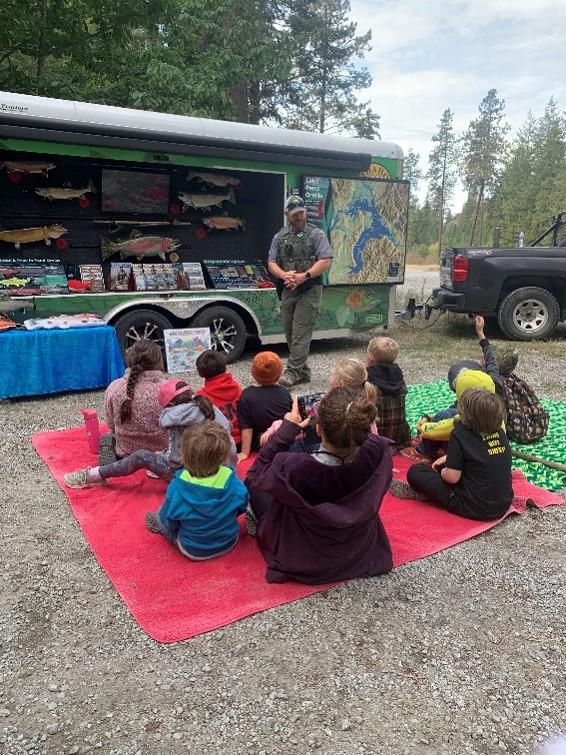Education is at the root of how TU works to help fish. The Panhandle Chapter and the local Project Managers both work on many different avenues of education, all in the goal of building understanding and connection to local fish and waterways.
The national restoration staff also partake in lots of educational events aimed at learning about and building connection to waterways, fish and aquatic ecosystems. These events include:
- Teaching at multiple youth Water Festivals.
- Serving on the board and partaking in the classes coordinated by The Confluence Project (TCP). TCP is a year-long, multi event water education program for high schoolers in North Idaho and hosted by the University of Idaho.
- Presenting for local community organizations about local fisheries, restoration work on streams and aquatic habitats.
- Sharing stories about our work through social media and local news outlets.
The Panhandle Chapter hosts and helps out with a number of annual educational events including:
- Angling education including casting tutorials, fly-tying, and presentations about gear and great places to fish.
- In 2025, PCTU will begin hosting a four day fly-fishing training course in Sandpoint. This program will give students (teens through 150 years old) a solid understanding of the techniques of fly-fishing so you can hit the streams this spring!
- The annual Fly-Fishing Film Tour (F3T) is a fun and educational film tour that is hosted at the Panida Theater in Sandpoint each March. This event will happen on March 14th, 2025.
- Presentations from local and regional fisheries experts at the annual Chapter Meetings which happen each November.
- Partnering in the Bull Trout Education Program which you can read more about below.
Project
Education
Collaborator
Too many to name…
Focus
Education and outreach
Education is at the heart of what TU does. Whether it's teaching a second grader about the 4Cs of healthy water, helping a veteran learn to cast, or educating our legislators about the impacts of off-road vehicles in the stream... it's all critical for the future of local native and wild trout.
PCTU is a proud partner in the Bull Trout Education Program:
The goal of the Bull Trout Education Program is to increase bull trout abundance through decreased angler induced mortality, to promote advocacy for the species and its habitat, and to create a culture of public awareness that continually supports these efforts.
In 1999, Avista and 26 other parties, including the Panhandle Chapter of TU, signed the Clark Fork Settlement Agreement, setting the course for over 40 years of protection, mitigation, and enhancement of natural resources in the lower Clark Fork Lake Pend Oreille Area. The purpose of the Bull Trout Education Program is to support the overall education goals of the Clark Fork Settlement Agreement implementation plan, namely to reduce the incidental harvest of Bull Trout and increase public awareness concerning the life history, habitat needs, identifying characteristics and potential vulnerability to human activities of Bull Trout and other native fish.
This is done through multipronged and engaging outreach to anglers, students and the general public with information about Bull Trout and Westslope Cutthroat Trout identification efforts, proper catch-and-release techniques and sound, science based fisheries management information. This effort augments other programs funded under the Clark Fork Settlement Agreement that are intended to result in greater numbers of Bull Trout in the Lower Clark Fork River and Lake Pend Oreille basin than would otherwise be the case, and support other efforts to protect and restore the basin’s aquatic resources.
Over the past decade, the PCTU has contracted with a Bull Trout Education Coordinator to organize the Trout and About Festival, organize and staff booths at other events, conduct on-line outreach, and procure promotional materials to help spread educational messages about Bull Trout and native fish habitat, coordinate field trips at locations such as the Trestle Creek interpretive site and the Waterlife Discovery Center, and identifying and staffing opportunities to reach other audiences with the assistance of the teaching tools and materials provided by the Native Fisheries Education Trailer.
This project provides direct benefits to conservation of Bull Trout being managed by Avista, Montana Fish & Wildlife, Idaho Dept. of Fish & Game, and the US Fish & Wildlife Service by reducing the incidence of unintentional mortality to bull trout due to misidentification and/or improper angling and release techniques, and increasing public awareness on the importance of high quality habitat.
Project Contact
Amy Anderson, Panhandle Chapter Trout Unlimited (PCTU) Bull Trout Education Coordinator, (850) 585-8512, tubulltroutcoordinator@gmail.com
